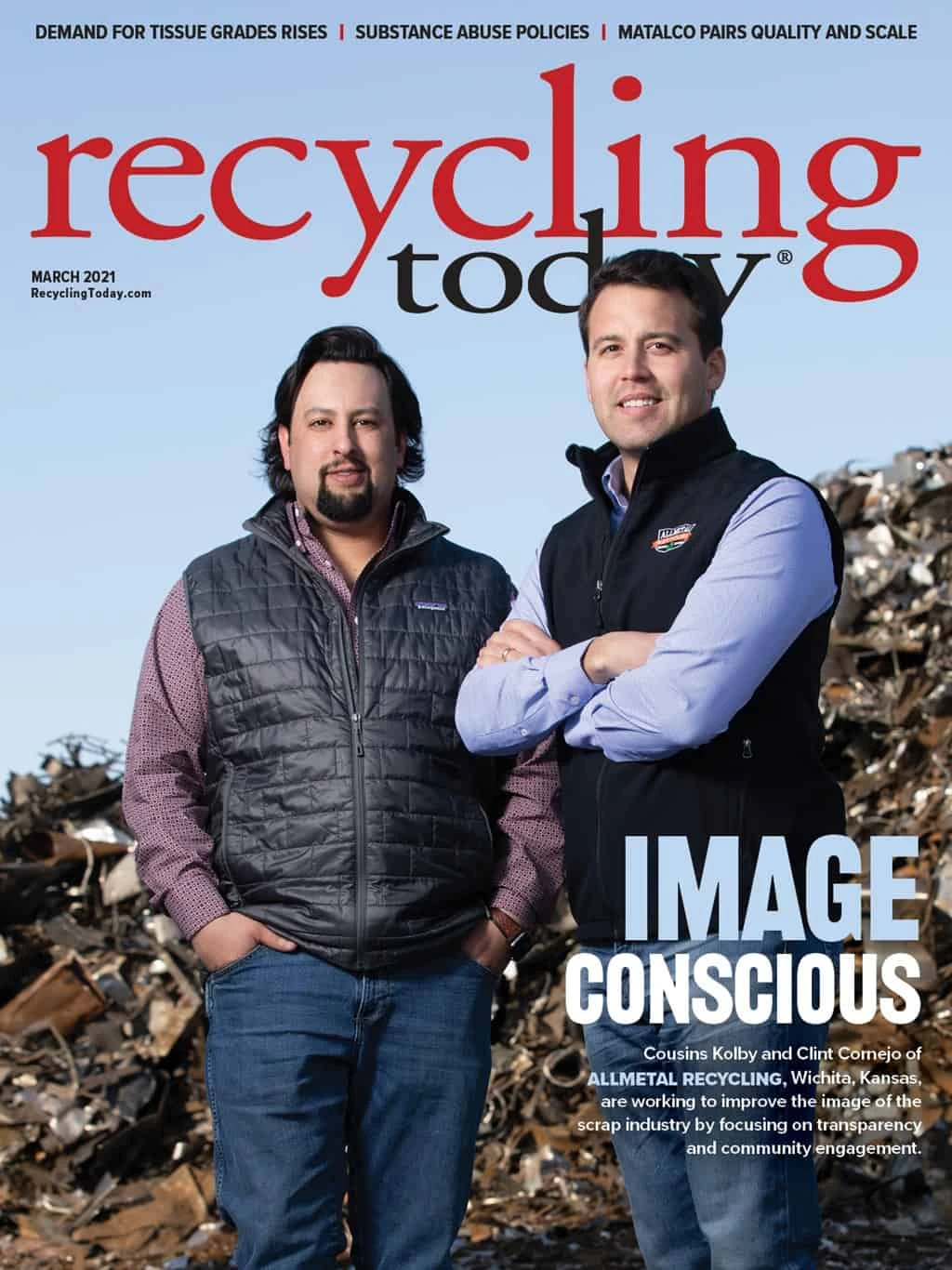
One lesson the pandemic has taught us is that recycling is an essential industry and a vital link in manufacturing supply chains for everything from automobiles to plastic bottles. According to the Institute of Scrap Recycling Industries (ISRI), recyclables account for 40 percent of U.S. manufacturers’ raw material needs. Despite recycling’s vital role and being foundational to the circular economy, some segments of the recycling industry, particularly scrap yards, sometimes have community relations problems.
Metals recycling offers a host of environmental benefits. According to ISRI, producing steel from scrap uses 60 percent less energy and produces 58 percent less carbon dioxide emissions compared with using virgin materials. Using scrap in aluminum production yields even more energy savings; producing aluminum from virgin material requires 95 percent more energy than using scrap does.
Recycling also yields economic benefits. U.S. recycling and brokerage operations employ 164,154 people directly and support an additional 367,356 jobs indirectly, according to ISRI.
“The many benefits of recycling can be overlooked by the communities surrounding these operations.”
However, the many benefits of recycling can be overlooked by the communities surrounding these operations. While some community members might acknowledge the benefits of recycling and recycle at home, they could still take issue with a scrap yard in the neighborhood, viewing it as an eyesore or even as a source of pollution. Scrap yard operators also are encountering environmental justice concerns as they attempt to expand or establish operations.
Knowing that scrap yards might not always be embraced by their communities has led cousins Clint and Kolby Cornejo, the co-owners of Kansas-based Allmetal Recycling Inc., to prioritize community involvement and upholding a professional image by operating equipment and facilities that are well-maintained. That “attention to detail,” as Clint calls it, “all goes back to changing the image of the industry.” To learn more about the company, click here.
At Recycling Today, we have approached many scrap company leaders who have declined to be profiled, saying they prefer to “fly under the radar.” I ask these companies to reconsider for the simple fact that the more recyclers talk about the good work they are doing and the pains they go to for the sake of environmental compliance, the better it will be for them and all other recyclers from a community relations standpoint.

Explore the March 2021 Issue
Check out more from this issue and find your next story to read.
Latest from Recycling Today
- Phoenix Technologies closes Ohio rPET facility
- EPA selects 2 governments in Pennsylvania to receive recycling, waste grants
- NWRA Florida Chapter announces 2025 Legislative Champion Awards
- Goldman Sachs Research: Copper prices to decline in 2026
- Tomra opens London RVM showroom
- Ball Corp. makes European investment
- Harbor Logistics adds business development executive
- Emerald Packaging replaces more than 1M pounds of virgin plastic





